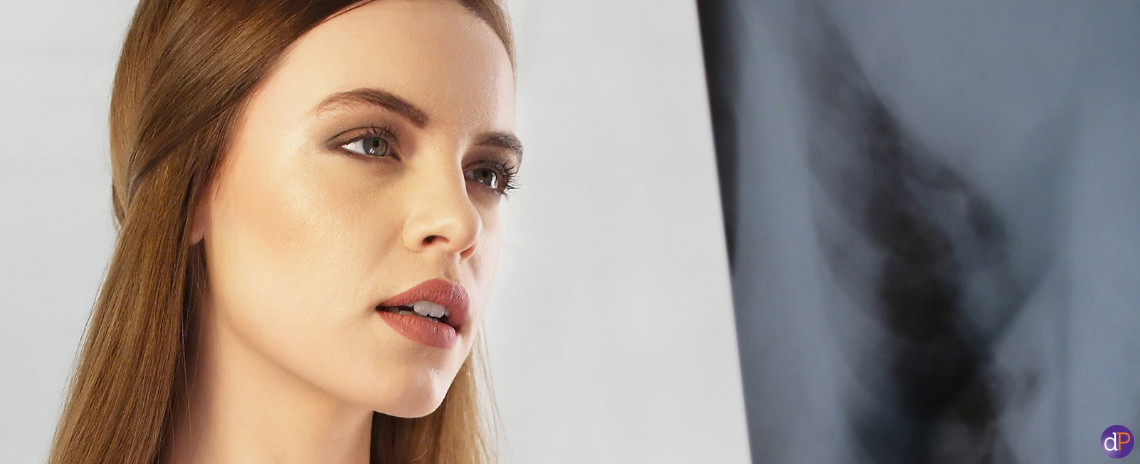Health Articles


Chronic obstructive pulmonary disease (COPD) is the name for a collection of lung diseases including chronic bronchitis, emphysema and chronic obstructive airways disease.
People with COPD have difficulties breathing, primarily due to the narrowing of their airways, this is called airflow obstruction.
Typical symptoms of COPD include:
- increasing breathlessness when active
- a persistent cough with phlegm
- frequent chest infections
Read more about the symptoms of chronic obstructive pulmonary disease.
Why does COPD happen?
The main cause of COPD is smoking. The likelihood of developing COPD increases the more you smoke and the longer you've been smoking. This is because smoking irritates and inflames the lungs, which results in scarring.
Over many years, the inflammation leads to permanent changes in the lung. The walls of the airways thicken and more mucus is produced. Damage to the delicate walls of the air sacs in the lungs causes emphysema and the lungs lose their normal elasticity. The smaller airways also become scarred and narrowed. These changes cause the symptoms of breathlessness, cough and phlegm associated with COPD.
Some cases of COPD are caused by fumes, dust, air pollution and genetic disorders, but these are rarer.
Read more about the causes of chronic obstructive pulmonary disease.
Who is affected?
COPD is one of the most common respiratory diseases in the UK. It usually affects people over the age of 35, although most people are not diagnosed until they are in their fifties.
It is thought there are over 3 million people living with the disease in the UK, of which only about 900,000 have been diagnosed. This is because many people who develop symptoms of COPD do not get medical help because they often dismiss their symptoms as a ‘smoker’s cough’.
COPD affects more men than women, although rates in women are increasing.
Diagnosis
It is important that COPD is diagnosed as early as possible so treatment can be used to try to slow down the deterioration of your lungs. You should see your GP if you have any of the symptoms mentioned above.
COPD is usually diagnosed after a consultation with your doctor, which may be followed by breathing tests.
Read more about diagnosing chronic obstructive pulmonary disease.
Treating COPD
Although the damage that has already occurred to your lungs cannot be reversed, you can slow down the progression of the disease. Stopping smoking is particularly effective at doing this.
Treatments for COPD usually involve relieving the symptoms with medication, for example by using an inhaler to make breathing easier.
Surgery is only an option for a small number of people with COPD.
Read more about treating chronic obstructive pulmonary disease.
Living with COPD
COPD can affect your life in many ways, but help is available to reduce its impact.
Simple steps such as keeping healthy, being as active as possible, learning breathing techniques, and taking your medication can help you to reduce the symptoms of COPD.
Financial support and advice about relationships and end of life care is also available for people with COPD.
Read more about living with chronic obstructive pulmonary disease.
Want to know more?
- British Lung Foundation: COPD
Can COPD be prevented?
Although COPD causes about 25,000 deaths a year in the UK, severe COPD can usually be prevented by making changes to your lifestyle.
If you smoke, stopping is the single most effective way to reduce your risk of getting the condition.
Research has shown you are up to four times more likely to succeed in giving up smoking if you use NHS support along with stop-smoking medicines such as patches or gum. Ask your doctor about this, call the NHS Smoking Helpline on 0800 022 4332 or go to the NHS Smokefree website.
Also avoid exposure to tobacco smoke as much as possible.
Want to know more?
- Find your local stop-smoking service
- Map of Medicine: Stopping smoking
- Remember you can always visit dearPHARMACIST at Regent Pharmacy, 19 Windmill Street, Gravesend, Kent DA12 1AS. Come and meet dearPHARMACIST today. Stop Smoking Service with dearPHRMACIST








